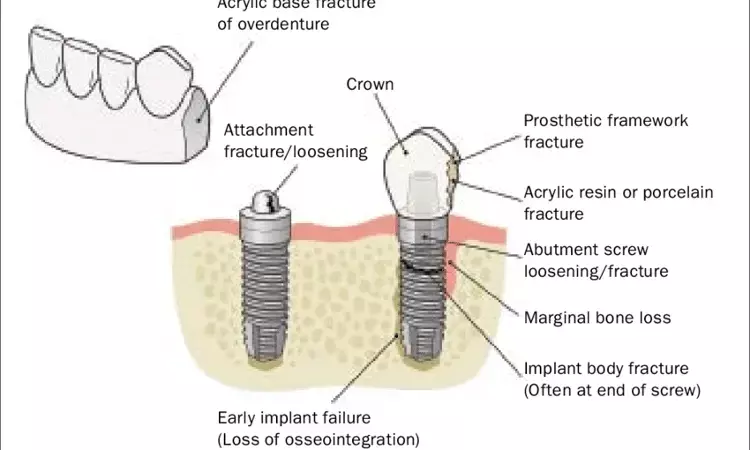- Home
- Medical news & Guidelines
- Anesthesiology
- Cardiology and CTVS
- Critical Care
- Dentistry
- Dermatology
- Diabetes and Endocrinology
- ENT
- Gastroenterology
- Medicine
- Nephrology
- Neurology
- Obstretics-Gynaecology
- Oncology
- Ophthalmology
- Orthopaedics
- Pediatrics-Neonatology
- Psychiatry
- Pulmonology
- Radiology
- Surgery
- Urology
- Laboratory Medicine
- Diet
- Nursing
- Paramedical
- Physiotherapy
- Health news
- Fact Check
- Bone Health Fact Check
- Brain Health Fact Check
- Cancer Related Fact Check
- Child Care Fact Check
- Dental and oral health fact check
- Diabetes and metabolic health fact check
- Diet and Nutrition Fact Check
- Eye and ENT Care Fact Check
- Fitness fact check
- Gut health fact check
- Heart health fact check
- Kidney health fact check
- Medical education fact check
- Men's health fact check
- Respiratory fact check
- Skin and hair care fact check
- Vaccine and Immunization fact check
- Women's health fact check
- AYUSH
- State News
- Andaman and Nicobar Islands
- Andhra Pradesh
- Arunachal Pradesh
- Assam
- Bihar
- Chandigarh
- Chattisgarh
- Dadra and Nagar Haveli
- Daman and Diu
- Delhi
- Goa
- Gujarat
- Haryana
- Himachal Pradesh
- Jammu & Kashmir
- Jharkhand
- Karnataka
- Kerala
- Ladakh
- Lakshadweep
- Madhya Pradesh
- Maharashtra
- Manipur
- Meghalaya
- Mizoram
- Nagaland
- Odisha
- Puducherry
- Punjab
- Rajasthan
- Sikkim
- Tamil Nadu
- Telangana
- Tripura
- Uttar Pradesh
- Uttrakhand
- West Bengal
- Medical Education
- Industry
Biological complications may lead to higher rates of abutment loss than technical complications regardless of type of abutment, finds study

Biological complications may lead to higher rates of abutment loss than technical complications regardless of type of abutment, finds study published in the Clinical Oral Implants Research.
Tooth- and implant-supported fixed dental prostheses are well-documented and aesthetic treatment alternatives, and after a comprehensive periodontal treatment, a protocol with a good long-term prognosis if the maintenance program is strictly followed. A study was done to reexamine a pre-existing patient cohort in order to obtain estimated long-term survival and complication outcomes of fixed dental prostheses. For this study, patients treated with fixed dental prostheses between 1978 and 2002 were reexamined between 2019 and 2020.
The restorations were divided in single crowns and fixed dental prostheses supported by teeth (TSC, FPTDP) and implants (ISC, FPIDP). Survival and complication rates were obtained. Kaplan–Meier functions were used to model complication probabilities, and average hazard ratios of different strata were compared using weighted Cox regression. Results: The mean observation time of 40 patients and 223 reconstructions was 20.3 (±9.7, 1.2–36.2) years. The estimated survival rates were 84% (CI: 77%–92%) for TSC, 63% (CI: 51%–79%) for FPTDP, 87% (CI: 71%–100%) for ISC, and 64% (CI: 34%–100%) for FPIDP after 25 years.
Biological complications included carious lesions (10.6%), periodontitis (7.9%), and peri-implantitis (6.8%). Technical complications included chipping (20.2%) and loss of retention (10.8%). Biological complications lead to abutment loss in more than two-thirds of cases, regardless of the type of abutment (tooth or implant). Technical complications are less associated with abutment loss than biological complications.
Reference:
Bischof, F. M., Mathey, A. A., Stähli, A., Salvi, G. E., & Brägger, U. (2024). Survival and complication rates of tooth- and implant-supported restorations after an observation period up to 36 years. Clinical Oral Implants Research, 00, 1–15. https://doi.org/10.1111/clr.14351
Dr. Shravani Dali has completed her BDS from Pravara institute of medical sciences, loni. Following which she extensively worked in the healthcare sector for 2+ years. She has been actively involved in writing blogs in field of health and wellness. Currently she is pursuing her Masters of public health-health administration from Tata institute of social sciences. She can be contacted at editorial@medicaldialogues.in.
Dr Kamal Kant Kohli-MBBS, DTCD- a chest specialist with more than 30 years of practice and a flair for writing clinical articles, Dr Kamal Kant Kohli joined Medical Dialogues as a Chief Editor of Medical News. Besides writing articles, as an editor, he proofreads and verifies all the medical content published on Medical Dialogues including those coming from journals, studies,medical conferences,guidelines etc. Email: drkohli@medicaldialogues.in. Contact no. 011-43720751


